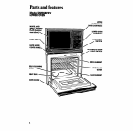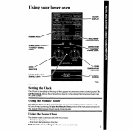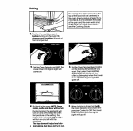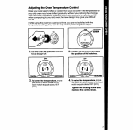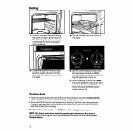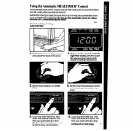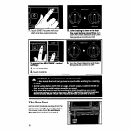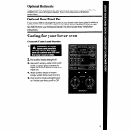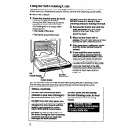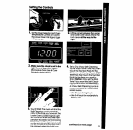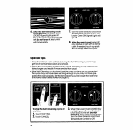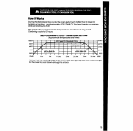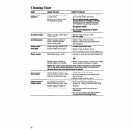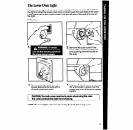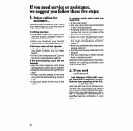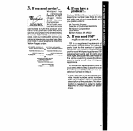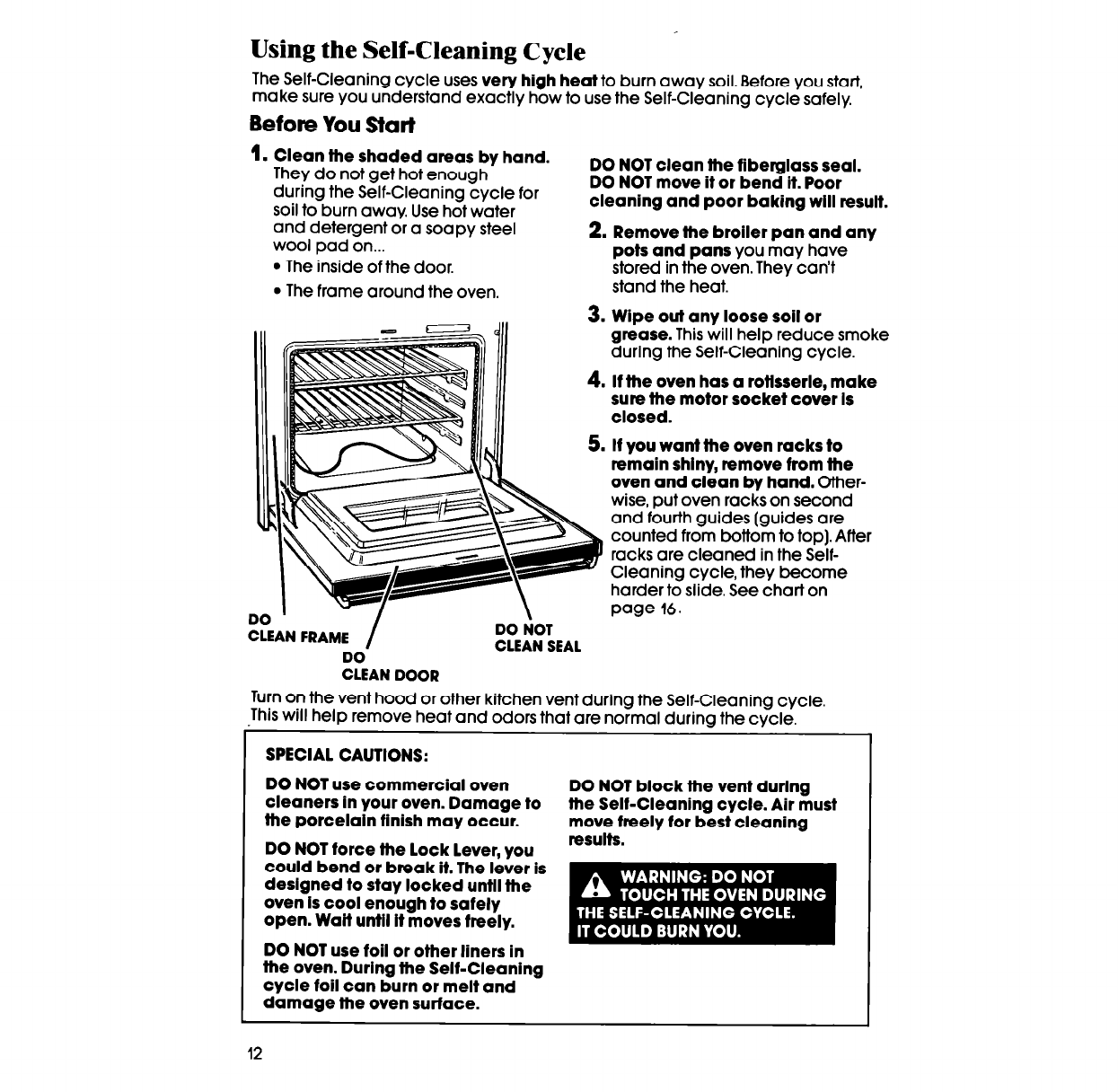
Using the Self-Cleaning Cycle
The Self-Cleaning cycle uses
very high heat
to burn away soil. Before you start,
make sure you understand exactly how to use the Self-Cleaning cycle safely.
Before You Start
1. Clean the shaded areas by hand.
They do not get hot enough
during the Self-Cleaning cycle for
soil to burn away Use hot water
and detergent or a soapy steel
wool pad on...
l The inside of the door.
l The frame around the oven.
ZAN FRAME
I
DO
DO NOT
CLEAN SEAL
DO NOT clean the fiberglass seal.
DO NOT move if or bend if. Poor
cleaning and poor baking will result.
2. Remove the broiler pan and any
pofs and pans you
may have
stored in the oven. They can’t
stand the heat.
3. Wipe out any loose soil or
grease.
This will help reduce smoke
during the Self-Cleaning cycle.
4. If the oven has a roflsserle, make
sure the motor socket cover Is
closed.
5. If you want the oven racks to
remain shiny, remove from the
oven and clean by hand.
Cther-
wise, put oven racks on second
and fourth guides (guides are
counted from bottom to top). After
racks are cleaned in the Self-
Cleaning cycle, they become
harder to slide. See chart on
page 16.
CLEAN DOOR
Turn on the vent hood or other kitchen vent during the Self-Cleaning cycle.
This will help remove heat and odors that are normal during the cycle.
SPECIAL CAUTIONS:
DO NOT use commercial oven
cleaners in your oven. Damage to
the porcelain finish may occur.
DO NOT force the lock lever, you
could bend or break if. The lever is
deslgned to stay locked until the
oven Is cool enough to safely
open. Wait until If moves freely.
DO NOT use foil or other liners in
the oven. During the Self-Cleaning
cycle foil can burn or melt and
damage the oven surface.
DO NOT block the vent during
the Self-Cleaning cycle. Air must
move freely for best cleaning
results.
12



